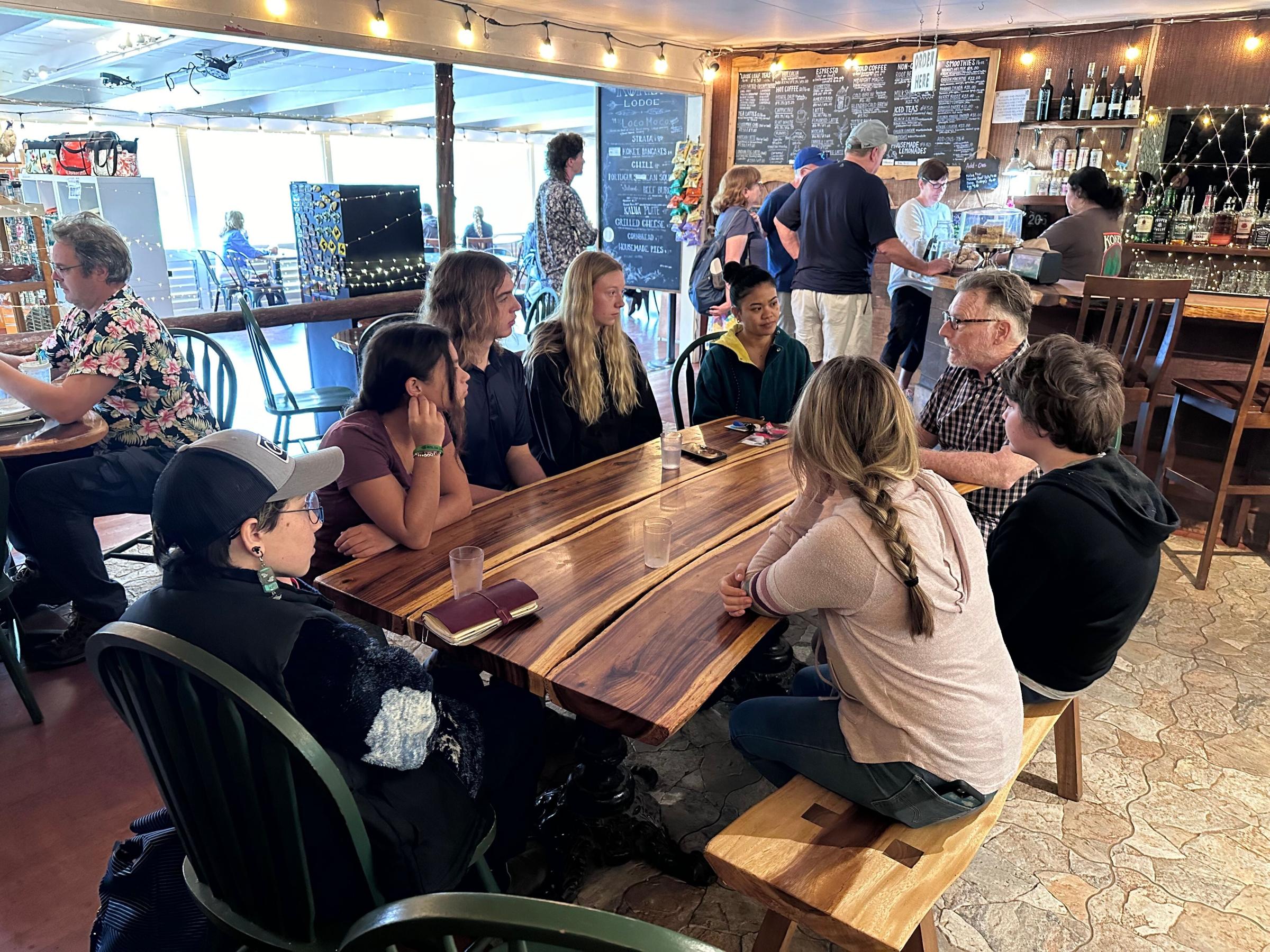Students sit at a table with certified green restaurant Kokee Lodge manager
Nurturing Environmental Stewards: Inside the Youth Climate Practitioners Class
By Ana Española, Sustainability Coordinator, County of Kaua'i
In a world increasingly concerned about climate change, a group of high school students on Kaua'i is taking proactive steps to learn how their communities are tackling the climate issue. The Youth Climate Practitioners class is a county initiative aimed at empowering young minds with the knowledge and skills to make a positive impact on their communities.
The primary goal of the class is to educate high school students about state and county sustainability goals while also introducing them to a variety of career opportunities in the field. As part of the curriculum, students have the unique opportunity to partner with local restaurants to guide them through the Hawai'i Green Business Program certification process.
Structured around the Aloha+ Challenge, each class session explores one of the six sustainability goals: clean energy, waste reduction, local food production, smart sustainable communities, natural resource management, and green workforce and education. This holistic approach allows students to grasp the interconnectedness of environmental issues and solutions.
The first field trip began at Kōkeʻe Lodge, a Hawaiʻi Green Business Certified restaurant, where students witnessed firsthand the power of conscious consumption. Kōkeʻe Lodge Manager Jim Ballantine Chef Dominic Garcia shared how they prioritize locally sourced ingredients to support the island's agricultural economy. The experience underscored the importance of sustainable sourcing and highlighted the potential of businesses to lead by example in environmental stewardship.
The journey continued at Kauaʻi Algae Farm, where students were amazed by the potential of algae as a renewable resource. Surrounded by vibrant green ponds, Global Algae Innovations President David Hazlebeck discussed the transformative potential of this humble organism in addressing pressing environmental challenges. From biofuels to nutritional supplements to protein, algae showcased its versatility as a renewable resource with far-reaching implications for a greener future.
At Anahola Solar Farm, KIUC Communications and Public Relations Specialist Allison Young shared the promise of renewable energy, its role in reducing fossil fuel dependency and fostering a homegrown green workforce. While embracing the potential of clean energy, students also grappled with the complexities and trade-offs inherent in transitioning to 100% renewable energy. While solar panels can harness sunlight, the lack of proper solar panel recycling can lead to more waste that ends up in the island’s landfill. This discussion ranged from land use implications to cultural and environmental impacts, highlighting the need for thoughtful and balanced decision-making.
Throughout their journey, students have learned sustainability is not just about finding solutions but understanding the broader impacts of their choices. By adopting a systems-thinking mindset, they are equipped to navigate the complexities of real-world challenges and strive for a balanced approach that benefits their island communities.

